Here you will find a first overview of the strengths of TIA sewage treatment plants. Each plant concept is based on our experience and is constantly supplemented by the company's own research and development.
Since 1987, TIA has been building custom-made, turnkey treatment plants for industrial and municipal wastewater as well as for the treatment and recycling of wastewater. Industrial wastewater treatment plants with capacities ranging from 30 m³ / day to 7,500 m³ / day have been built in a wide variety of industries. The scope of services ranges from fully automated, turnkey wastewater treatment plants for industrial areas to ex-works supplied kits for small businesses, hotels, hospitals and municipalities.
All TIA sewage treatment plants are "Made in Germany". All TIA wastewater treatment plant projects are "Managed in Germany".
In accordance with the requirements of the industry, TIA treatment plants are designed modularly and can be easily extended and adapted to changing performance requirements. This development possibility characterises the TIA wastewater treatment concept just as much as the energy efficiency and the low support and consumables costs.
All TIA wastewater treatment plants represent a technically and economically optimal solution for the respective operation:
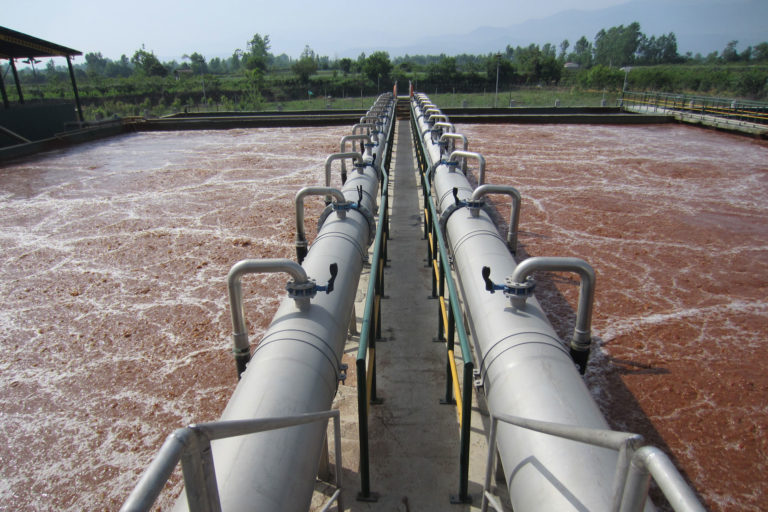
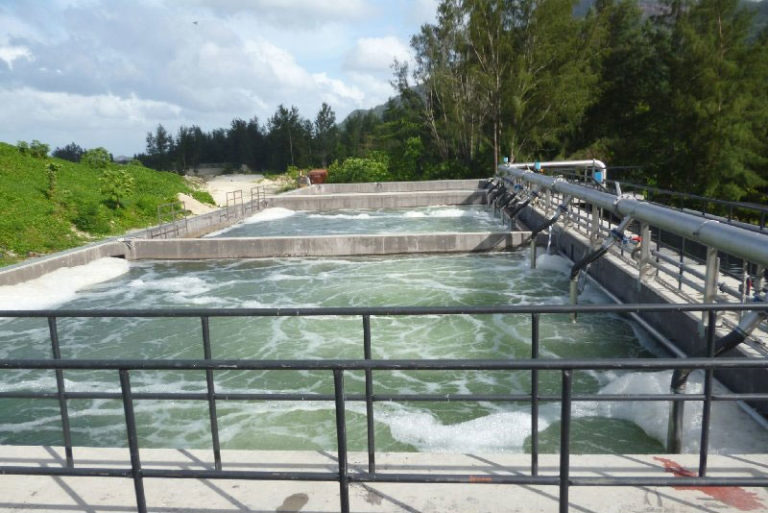
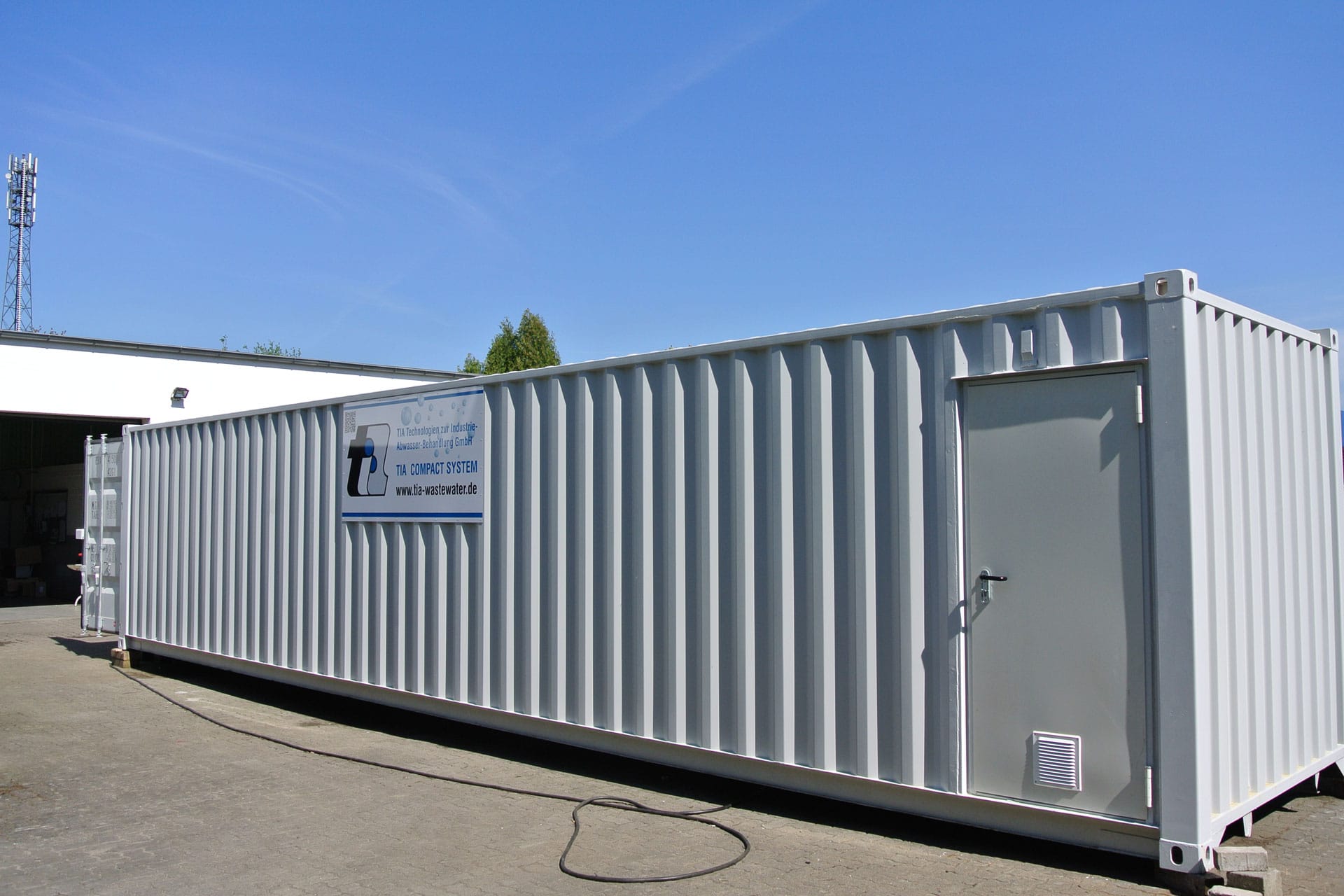
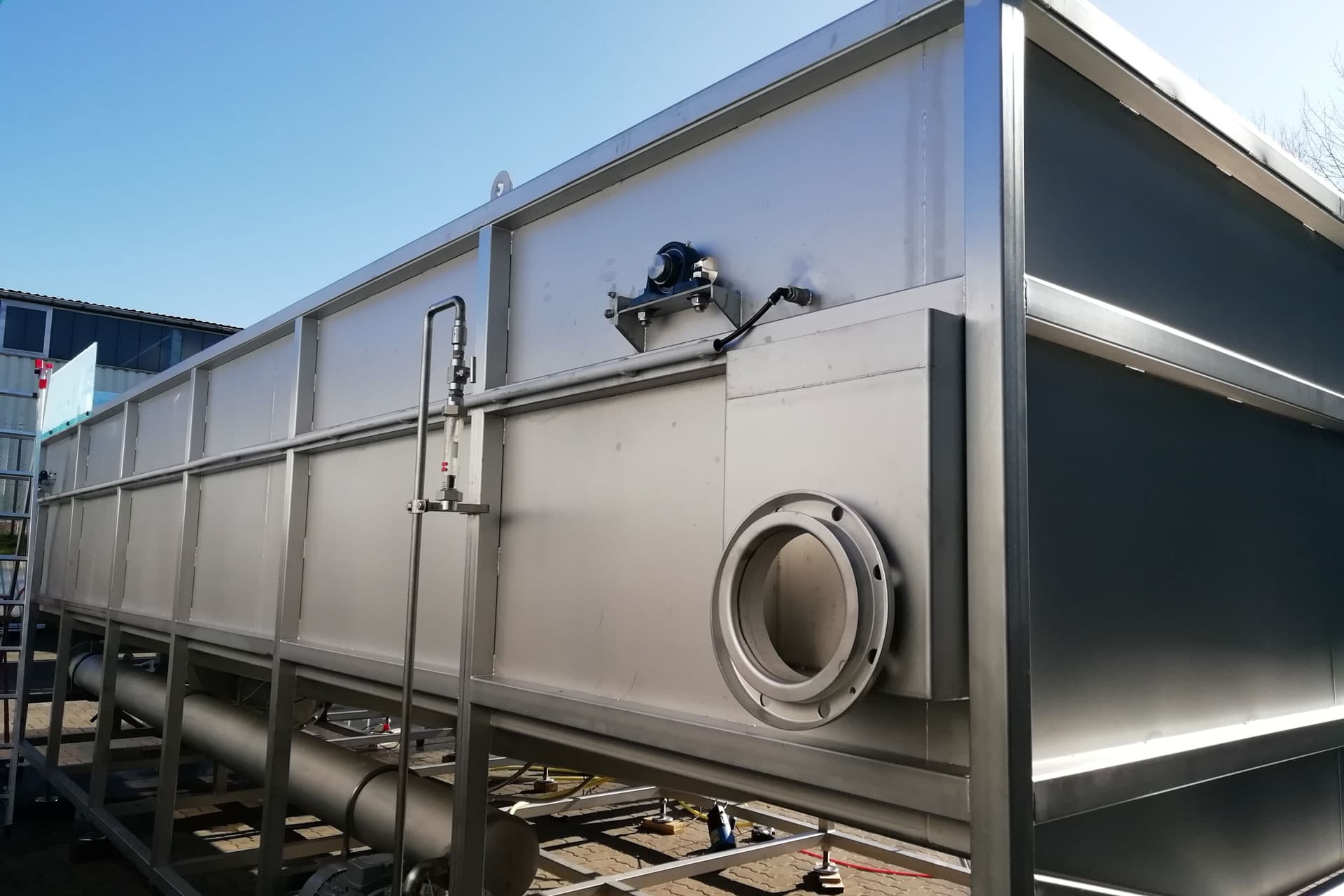
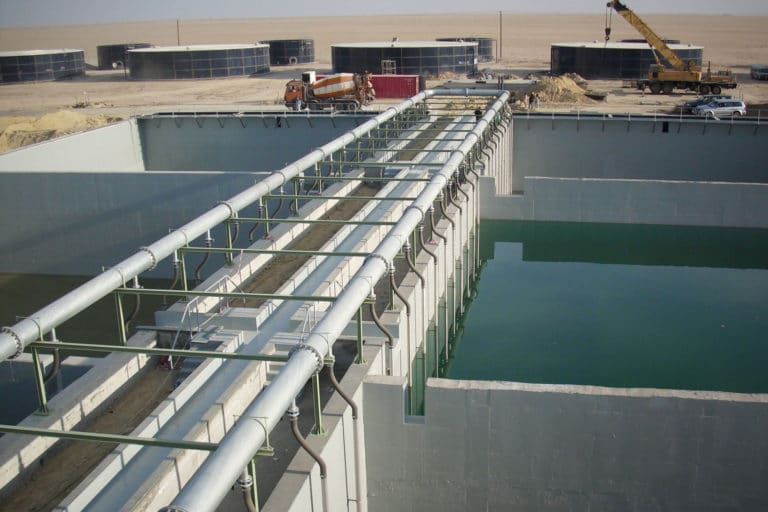
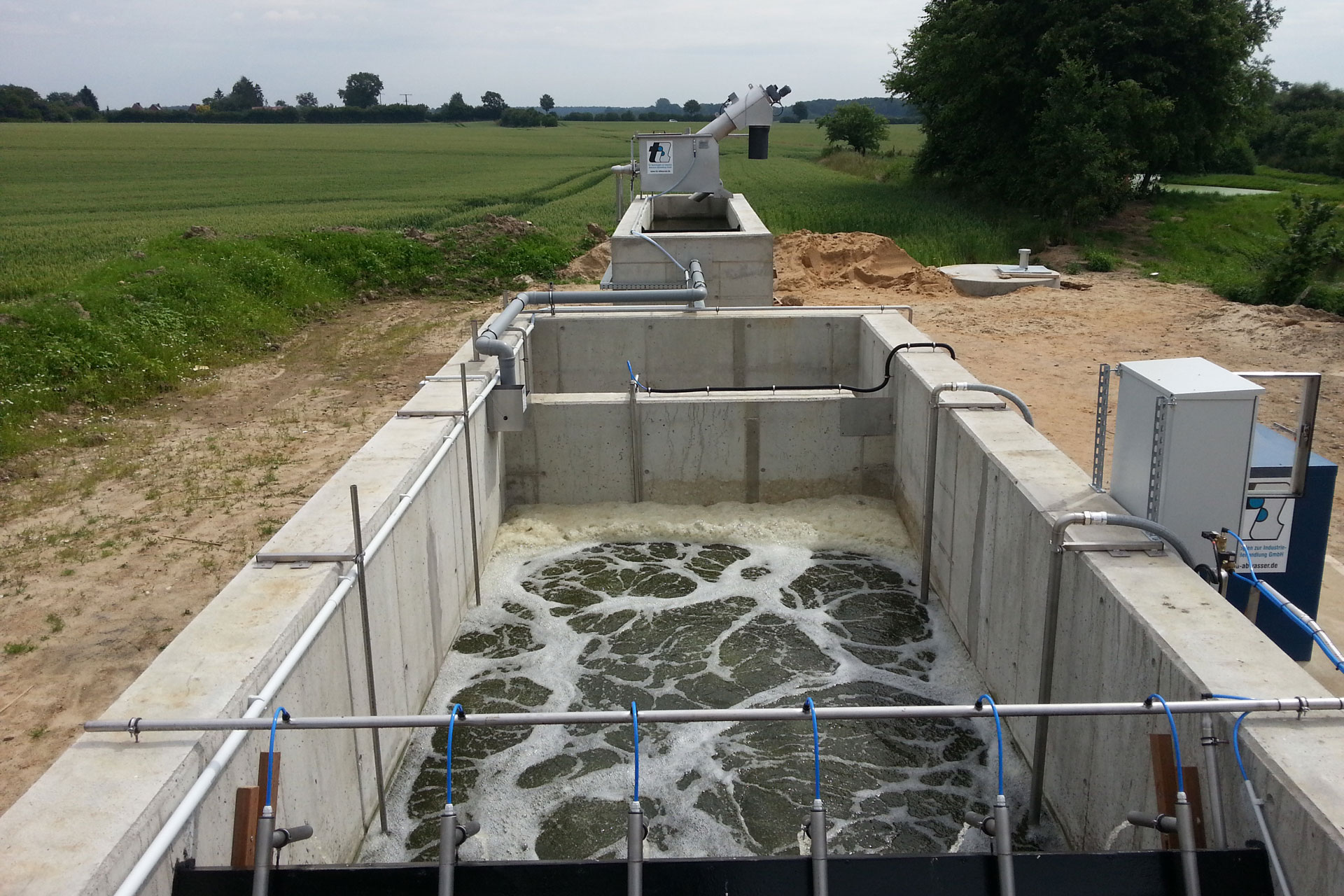
Plant components for the self-construction of a municipal wastewater plant in the range of 300 up to 2,000 PE in the proven TIA COMPACTmini can be completely assembled and installed by local companies. TIA supplies the know-how, construction/building plans and all plant components from Germany. Even smaller plants can be designed in an extremely cost-effective way and in high quality. TIA COMPACTmini is a state-of-the-art wastewater treatment plant for COD/BOD removal and nitrogen elimination. As a third purification stage, a disinfection / UV disinfection can also be provided so that the water can be used for irrigation. With a membrane system it can even be treated to drinking water. The plant is ideally suited for smaller communities, as a substitute/supplement to pond treatment plants, for hospitals, hotel facilities, etc.


There are many operational situations where a quick and easy solution to temporary wastewater problems is needed. In addition to the TIA sewage treatment plant construction, TIA offers mobile rental wastewater treatment plants for temporary use at the customer's site. These are well proven and can be adapted to the respective application. It is possible to accompany the operation through agreed visits or support on site or via data exchange.
You will shortly receive additional information on this process here.
The ARS process was developed and patented about 25 years ago together with the Technical University Hamburg Harburg. With this process, the sludge age of a biological treatment stage can be increased to over 20 days with little additional effort. This increased sludge age results in stable operation of the treatment plant, absence of odour and excellent accident management.
You will shortly receive additional information on this process here.
The reuse of treated wastewater and surface water can be supported surprisingly well by disinfection with UV radiation. In a 2-stage TIA soil passage, organic contamination as well as ammonium and nitrate are significantly reduced at low cost. The colony-forming germs are reduced by 90%.
For operation, monitoring and, if necessary, rough cleaning is only necessary from time to time.
A downstream LED-UV system sterilises the water to drinking water quality.
In countries where the reuse of used water is indicated, this system combination provides a cost-effective solution with almost no operating costs.
The effectiveness of this technology has been proven in a research project in cooperation with the Technical University of Ulm.
To increase the power density in wastewater treatment plants or, in multi-stage wastewater treatment plants for the degradation of refractory substances, TIA uses carrier materials in bioreactors in addition to the activated sludge (hybrid reactors).
Preferably, a movable, textile knitted fabric is used, which is set in stainless steel frame constructions. The TIA FLEXIFILM modules are resistant to clogging even at low flow rates. They can be retrofitted in deep or surface aerated aeration tanks with little effort and without interrupting operation.
For the loosely inserted support bodies in "moving bed bioreactors" (MBBR), only fillers are used that are abrasion-resistant and thus do not represent sources of microplastic emissions.
TIA Flexifilm wurde zur Leistungssteigerung von bestehenden Belebtschlamm-Anlagen entwickelt. Die Leistung der Anlagen wird nachweislich um bis zu 30% erhöht.
TIA Flexifilm was developed to increase the performance of existing activated sludge plants. The performance of the plants is proven to be increased by up to 30%.
TIA Flexifilm is a flexible growth carrier for microorganisms that is inserted as a module into the existing wastewater treatment plant or placed on top as a floating element.
TIA Flexifilm is installed without interrupting operation and without additional construction work or technical retrofitting.
TIA Flexifilm wird ohne Betriebsunterbrechung und ohne zusätzliche Bauarbeiten oder technische Umrüstung installiert.
You will shortly receive additional information on this process here.
TIA flotation plants are particularly suitable for the separation of substances such as fat or oil, for the separation of precipitated or flocculated substances and for the separation of unseparated sludge.
Plants made of stainless steel are available with a capacity of 2 to 120 m³/h, both with and without lamella technology. In concrete any plant with any capacity can be built.
You will shortly receive additional information on this process here.
You will shortly receive additional information on this process here.
You will shortly receive additional information on this process here.
You will shortly receive additional information on this process here.
You will shortly receive additional information on this process here.
You will shortly receive additional information on this process here.
You will shortly receive additional information on this process here.
You will shortly receive additional information on this process here.
You will shortly receive additional information on this process here.
You will shortly receive additional information on this process here.
You will shortly receive additional information on this process here.
You will shortly receive additional information on this process here.
The retention of bacteria in a biological treatment plant is often the weak point of the process. TIA has therefore developed the 2-stage clarification: Here, the normal sedimentation is followed by a separation via lamellas. This ensures the retention of biomass in the sewage treatment plant and thus the entire purification process. Furthermore, the 2-stage secondary clarification requires only 1/3 of the space of a conventional sedimentation. It is far superior to conventional sedimentation in cold and very warm areas.
Sie ist in kalten und sehr warmen Gegenden der konventionellen Sedimentation weit überlegen.
All components of the waste water treatment plants such as pumps, blowers or screens are supplied to us by well-known manufacturers from Germany or other European countries. TIA modules made of stainless steel or plastic are built by proven specialists according to TIA specifications.

Since 1987 we have been planning and supplying turnkey and tailor-made wastewater treatment plants for our international customers in industry and municipalities.
© 2020 • TIA Technologien zur Industrie-Abwasser-Behandlung GmbH • Alle Rechte vorbehalten